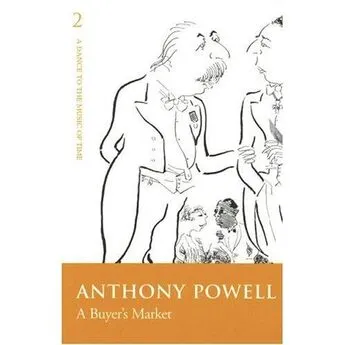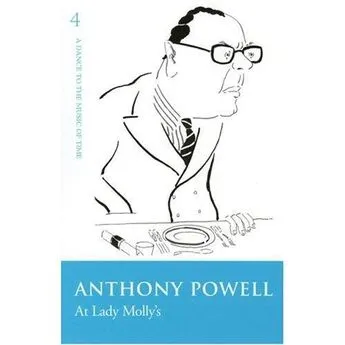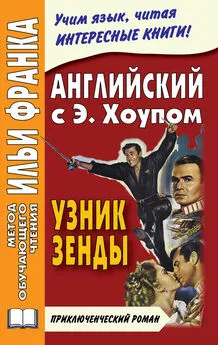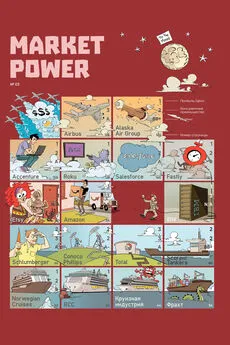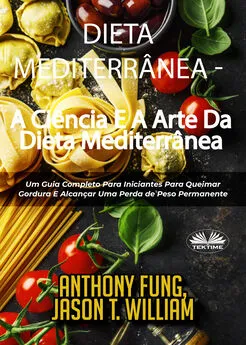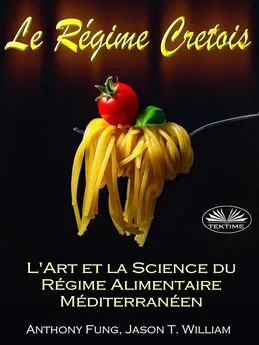Anthony Powell - A Buyers Market
- Название:A Buyers Market
- Автор:
- Жанр:
- Издательство:Arrow
- Год:2005
- ISBN:нет данных
- Рейтинг:
- Избранное:Добавить в избранное
-
Отзывы:
-
Ваша оценка:
Anthony Powell - A Buyers Market краткое содержание
Anthony Powell's universally acclaimed epic A Dance to the Music of Time offers a matchless panorama of twentieth-century London. Now, for the first time in decades, readers in the United States can read the books of Dance as they were originally published-as twelve individual novels-but with a twenty-first-century twist: they're available only as e-books. The second volume, A Buyer's Market (1952), finds young Nick Jenkins struggling to establish himself in London. Amid the fever of the 1920s, he attends formal dinners and wild parties; makes his first tentative forays into the worlds of art, culture, and bohemian life; and suffers his first disappointments in love. Old friends come and go, but the paths they once shared are rapidly diverging: Stringham is settling into a life of debauchery and drink, Templer is plunging into the world of business, and Widmerpool, though still a figure of out-of-place grotesquerie, remains unbowed, confident in his own importance and eventual success. A Buyer's Market is a striking portrait of the pleasures and anxieties of early adulthood, set against a backdrop of London life and culture at one of its most effervescent moments.
A Buyers Market - читать онлайн бесплатно полную версию (весь текст целиком)
Интервал:
Закладка:
Only Eleanor, still no doubt contemplating hound puppies and their diet, or perhaps disapproving in general of the assembled company’s formal tone, appeared uncompromisingly bored. Sir Magnus himself did not talk much, save intermittently to express some general opinion. His words, wafted during a comparative silence to the farther end of the table, would have suggested on the lips of a lesser man processes of thought of a banality so painful — of such profound and arid depths, in which neither humour, nor imagination, nor, indeed, any form of human understanding could be thought to play the smallest part — that I almost supposed him to be speaking ironically, or teasing his guests by acting the part of a bore in a drawing-room comedy. I was far from understanding that the capacity of men interested in power is not necessarily expressed in the brilliance of their conversation. Even in daylight he looked young for his age, and immensely, almost unnaturally, healthy.
At the end of the meal, on leaving the dining-room, Sir Gavin, who had one of his favourite schemes to discuss, cornered Lord Huntercombe, and they went off together. Lord Huntercombe, a small man, very exquisite in appearance and possessing a look of ineffable cunning, was trustee of one, if not more, of the public galleries, and Sir Gavin was anxious to interest him in a project, dear to his heart, of which he had spoken at Hinton, regarding the organisation of a special exhibition of pictures to be thought of as of interest in connection with the history of diplomatic relations between England and the rest of the world. The two of them retired among the yew hedges, Lord Huntercombe’s expression presaging little more than sufferance at the prospect of listening to Sir Gavin’s plan. The rest of the party broke up into groups. Jean, just as she used to disappear from the scene in her own home, was nowhere to be found on the terrace, to which most of the party now moved. Peggy Stepney, too, seemed to have gone off on her own. Finding myself sitting once more with Stringham and Truscott, I asked when the wedding was to take place.
“Oh, any moment now,” Stringham said. “I’m not sure it isn’t this afternoon. To be precise, the second week in October. My mother can’t make up her mind whether to laugh or cry. I think Buster is secretly rather impressed.”
I found it impossible to guess whether he was getting married because he was in love, because he hoped by taking this step to find a more settled life, or because he was curious to experiment with a new set of circumstances. The absurdity of supposing that exact reasons for marriage can ever be assigned had not then struck me; perhaps excusably, since it is a subject regarding which everyone considers, at least where friends are concerned, the assumption of categorical knowledge to be an inalienable right. Peggy Stepney herself looked pleased enough, though the formality of her style was calculated to hide outward responses. There had been an incident — hardly that — while we had been talking before luncheon. She had let her hand rest on a table in such a way that it lay, at least putatively, in Stringham’s direction. He had placed his own hand over hers, upon which she had jerked her fingers away, almost angrily, and begun to powder her face. Stringham had shown absolutely no sign of noticing this gesture. His first movement had been made, so it had appeared, almost automatically, not even very specifically as a mark of affection. It was possible that some minor quarrel had just taken place; that she was teasing him; that the action had no meaning at all. Thinking of the difficulties inherent in his situation, I began to turn over once more the meeting with Jean, and asked Stringham if he knew that Peter Templer’s sister was one of the guests at Stourwater.
“Didn’t even know he had a sister — of course, yes, I remember now — he had two at least. One of them, like my own, was always getting divorced.”
“This is the younger one. She is called Mrs. Duport.”
“What, Baby’s friend?”
He did not show the least interest. It was inexplicable to me that he had apparently noticed her scarcely at all; for, although Widmerpool’s love for Barbara had seemed an outrageous presumption, Stringham’s indifference to Jean was, in the opposite direction, almost equally disconcerting. My own feelings for her might still be uncertain, but his attitude was not of indecision so much as complete unawareness. However, the thought of Mrs. Wentworth evidently raised other questions in his mind.
“What sort of progress is Theodoric making with Baby?” he asked.
Truscott smiled, making a deprecatory movement with his finger to indicate that the matter was better undiscussed: at least while we remained on the terrace.
“Not very well, I think,” Stringham said. “It will be Bijou Ardglass, after all. I’ll have a bet on it.”
“Did the Chief strike you as being a bit off colour at luncheon, Charles?” Truscott asked, ignoring these suppositions.
He spoke casually, though I had the impression he might be more anxious about Sir Magnus’s state of temper than he wished outwardly to admit.
“I heard him say once that it took all sorts to make a world,” said Stringham. “He ought to write some of his aphorisms down so that they are not forgotten. Would it be an occasion for the dungeons?”
He made this last remark in that very level voice of his that I recognised, as of old, he was accustomed to employ when intending to convey covert meaning to some apparently simple statement or question. Truscott pouted, and lowered his head in rather arch reproof. I saw that he was amused about some joke shared in secret between them and I knew that I had judged correctly in suspecting latent implication in what Stringham had said.
“Baby doesn’t like it.”
“Who cares what Baby likes?”
“The Chief is never unwilling,” Truscott said, still smiling. “It certainly might cheer him up. You ask him, Charles.”
Sir Magnus was talking to Lady Huntercombe only a short distance from us. Stringham moved across the terrace towards them. As he came up, Lady Huntercombe, whose features and dress had been designed to recall Gainsborough’s Mrs. Siddons, turned, almost as if she had been expecting his arrival, and pointed with an appropriately dramatic gesture, to the keep of the castle, as if demanding some historical or architectural information. I could see Stringham repress a smile. Her words had perhaps made his inquiry easier to present. Before answering, he inclined towards Sir Magnus, and, with perhaps more deference than had been common to his manner in former days, put some question. Sir Magnus, in reply, raised his eyebrows, and — like Truscott a few minutes earlier, who had perhaps unconsciously imitated one of his employer’s mannerisms — made a deprecatory movement with his forefinger; his face at the same time taking on the very faintest suggestion of a deeper colour, as he in turn addressed himself to Lady Huntercombe, apparently requesting her opinion on the point brought to his notice by Stringham. She nodded at once in such a way as to indicate enthusiasm, the rather reckless gaiety of a great actress on holiday, one of the moods, comparatively limited in range, to which her hat and general appearance committed her. Stringham looked up and caught Truscott’s eye.
The result of the consultation was a public announcement by Truscott, as Sir Magnus’s mouthpiece, that our host, who had by then spoken a word with Prince Theodoric, would himself undertake a personally conducted tour of the castle, “including the dungeons.” This was the kind of exordium Truscott could undertake with much adroitness, striking an almost ideal mean between putting a sudden stop to conversation, and, at the same time, running no risk of being ignored by anyone in the immediate neighbourhood. No doubt most of those assembled round about had already made the inspection at least once. Some showed signs of unwillingness to repeat the performance. There was a slight stir as sightseers began to sort themselves out from the rest. The end of the matter was that about a dozen persons decided to make up the company who would undertake the tour. They were collected into one group and led indoors.
“I’ll get the torches,” said Truscott.
He went off, and Stringham returned to my side,
“What is the joke?”
“There isn’t one, really,” he said, but his voice showed that he was keeping something dark.
Truscott returned, carrying two electric torches, one of which he handed to Stringham. The party included Prince Theodoric, Lady Huntercombe, Miss Janet Walpole-Wilson, Eleanor, Rosie Manasch, and Pardoe: together with others, unknown to me. Stringham went ahead with Truscott, who acted as principal guide, supplying a conjunction of practical information and historical detail, in every way suitable to the circumstances of the tour. As we moved round, Sir Magnus watched Truscott with approval, but at first took no part himself in the exposition. I felt certain that Sir Magnus was secure in exact knowledge of the market price of every object at Stourwater: that kind of insight that men can develop without possessing any of the æsthete’s, or specialist’s cognisance of the particular category, or implication, of the valuable concerned. Barnby used to say that he knew a chartered accountant, scarcely aware even how pictures are produced, who could at the same time enter any gallery and pick out the most expensively priced work there “from Masaccio to Matisse,” simply through the mystic power of his own respect for money.
We passed through room after room, apartments of which the cumulative magnificence seemed only to enhance the earlier fancy that, at some wave of the wand — somewhat in the manner of Peer Gynt — furniture and armour, pictures and hangings, gold and silver, crystal and china, could turn easily and instantaneously into a heap of withered leaves blown about by the wind. From time to time Prince Theodoric made an appreciative comment, or Miss Walpole-Wilson interjected a minor correction of statement; although, in the latter case, it was clear that Truscott’s effective handling of the matter of sitting next to her at luncheon had greatly reduced the potential of her critical assault.
We made an end of that part of the interior of the castle to be regarded as “on show,” returning to the ground floor, where we came at length to the head of a spiral staircase, leading down to subterranean depths. Here Sir Magnus was handed one of the torches by Truscott, and from this point he took over the role of showman. There was a slight pause. I saw Stringham and Truscott exchange a look.
“We are now descending to the dungeons,” said Sir Magnus, his voice trembling slightly. “ I sometimes think that is where we should put the girls who don’t behave.”
He made this little speech with an air almost of discomfort. A general titter rippled across the surface of the party, and there was a further pause, as of expectancy, perhaps on account of an involuntary curiosity to learn whether he would put this decidedly threatening surmise to practical effect. Truscott smiled gently, rather like a governess, or nanny, of wide experience who knows only too well that “boys will be boys.” I could see from Stringham’s face that he was suppressing a tremendous burst of laughter. It struck me, at this moment, that such occasions, the enjoyment of secret laughter, remained for him the peak of pleasure, for he looked suddenly happier; more buoyant, certainly, than when he had introduced me to Peggy Stepney. What perverse refinements, verbal or otherwise, were actually implied by Sir Magnus’s words could only be guessed. It seemed that this remark, as an assertion of opinion, had always to be uttered at this point in the itinerary, and that its unfailing regularity was considered by his secretaries — if Stringham and Truscott could be so called — as an enormous hidden joke.
Читать дальшеИнтервал:
Закладка:
